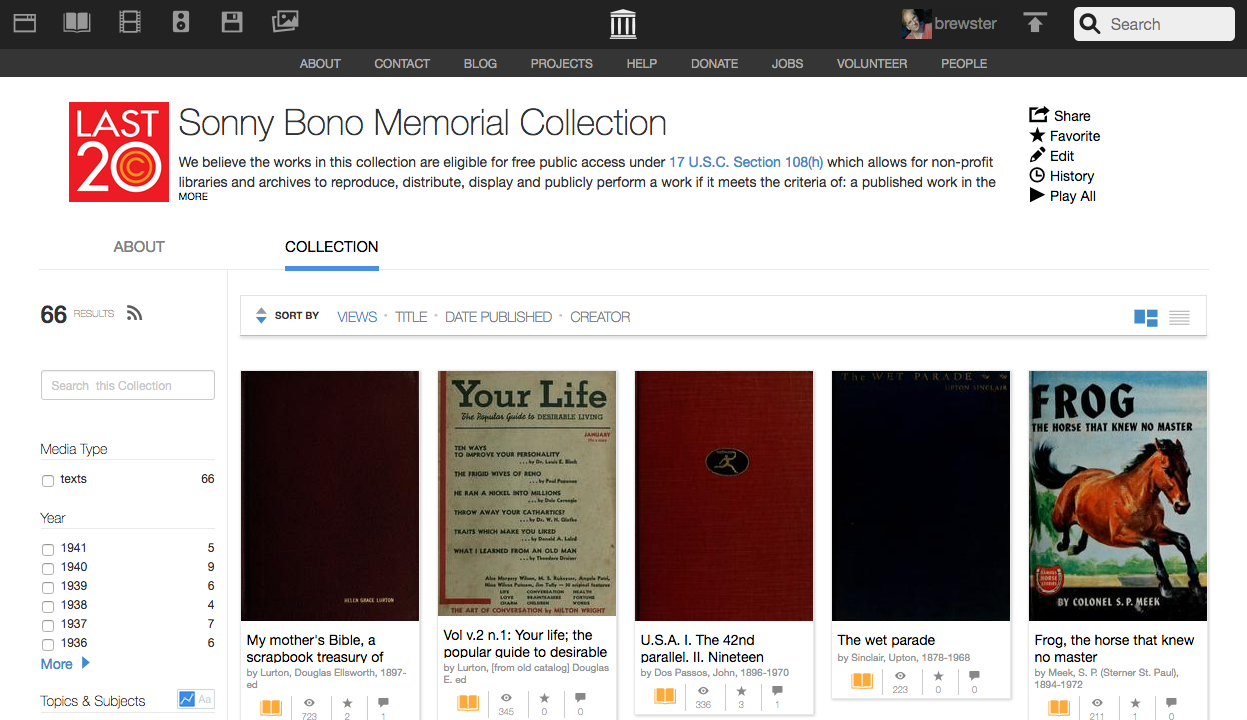Internet Archive secured the right to scan books published from 1923 to 1941

The idea of creating a digital library, where instead of paper books would be their digital copies, has many positive aspects. Electronic copies of books cannot be broken, they cannot be drawn, a copy of a rare and expensive book cannot be stolen for the purpose of selling to a collector for a lot of money, millions of readers can access the electronic copy on the Internet. But the problem is that holders' digitalization of libraries is hindering the holders.
For example, in Europe, a book becomes available to society (free of charge) only if the author of this book has died, and 50 years have passed since his death. This is rather inconvenient, but in the USA there is no such possibility. Here, even for many years not publishing books, no one has the right to publish again (in any form), if the issues of ownership with the author, his heirs or the publisher are not resolved. For Google, this rule turned out to be practically insurmountable; with all its might, a corporation can do almost nothing. But then Google, but the Internet Archive could .
True, this organization still can not scan all the books in a row. The victory won over copyright holders is small and concerns only books published from 1923 to 1941. You can scan them only if their sales are not very active or are completely absent. Permission to digitize these books Internet Archive received in court due to a small loophole in the legislation. This is a clause of law 108h , which states that libraries can scan books that meet the conditions mentioned above. These books fall into the collection The Sonny Bono Memorial Collection .
Now there are only 67 books in this section, but soon thousands will be added. In any case, the Internet Archive staff has big plans for this. Scanned books Internet Archive can lay out in open access. However, before you put the book you need to carefully check whether it meets all the conditions. This is done by a special organization team led by Professor Townsend Gard.
Representatives of the Internet Archive hope that libraries will help them digitize suitable books. For this, a document has been issued that can be called a “digitizer guide”. It indicates everything that can be done within the framework of the exception to the copyright law mentioned above.
Well, since all these books are shared, then any user can download and read them. “Working with the Interhnet Archive gave us the opportunity to make this exception workable,” said Townsend Guard.
 Unfortunately, the conditions for scanning books are too hard. It is because of them that the same Google with its 50-60 petabytes of digitized books cannot provide access to them even for money. Google has a search for books where the reader can see small excerpts, but that’s all. For several years, the corporation has been trying to negotiate with publishers, authors, and officials about the possibility of scanning books. As a result, the ships with a duration of almost 3 years, the corporation received permission to show individual excerpts from digitized books. But only a few engineers of the corporation have access to them, who are responsible for the work of the storage system and for the fact that no one else can get access to these books.
Unfortunately, the conditions for scanning books are too hard. It is because of them that the same Google with its 50-60 petabytes of digitized books cannot provide access to them even for money. Google has a search for books where the reader can see small excerpts, but that’s all. For several years, the corporation has been trying to negotiate with publishers, authors, and officials about the possibility of scanning books. As a result, the ships with a duration of almost 3 years, the corporation received permission to show individual excerpts from digitized books. But only a few engineers of the corporation have access to them, who are responsible for the work of the storage system and for the fact that no one else can get access to these books.
Moreover, all that needs to be done in order to open access for everyone to this huge database of digital copies of the book is to perform a single database request, as a result of which access would be switched from “Off” to “On”. A few minutes - and all the books of the world (with certain reservations) may belong to everyone. But, unfortunately, due to the peculiarities of US law - this is impossible. If someone does this, the corporation will have huge problems with the copyright holders. Lawsuits, fines, all sorts of prohibitions are inevitable.
After all these problems with digitized books, Google has lost interest in its idea of digitization, but, as we see, library digitization enthusiasts are there, and they work. Maybe one day this idea will be realized, who knows.
All Articles